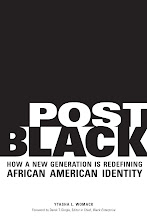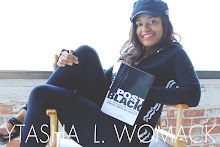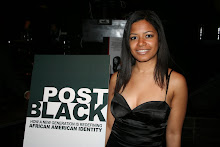Jam Donaldson is an attorney and author of the book Conversate is Not a Word. She is also creator of the website www.hotghettomess.com and the TV show “We’ve Got to Do Better.” She’s based in Washington D.C.
YLW: What made you want to write Conversate is Not a Word?
JD: I did not plan on doing this book. My goal was not to do a book, but people around me encouraged me to put it together. I never wanted to be an author. I started writing and soon it looked like I had a book.
YLW: Why did friends want you to write a book?
JD: At the time I had my website, www.hotghettomess.com. The TV show was coming out. That was really controversial. People responded to my editorial pieces and blog pieces, and said we need someone in your generation saying these things. And there’s no women talking about this. Some people thought it was controversial or mean spirited, but there was nothing out there. People said no one is crazy enough to say it.
YLW: Some could argue that your criticism of ghettoisms are class based and that you’re critical of people with limited incomes, exposure and education. How do you respond to that?
JD: That's not true. My book is not about the ghetto as a place but as a mentality. I think it’s almost insulting to say [ghettoisms] are just lower class problems. To me that insults the lower class. I know plenty of my peers who are well educated and solidly middle class who are a hot ghetto mess sometimes. Just because you don’t have a high income doesn’t give you the right to act a fool, and just because you have a high income doesn’t mean you’re immune to being a fool. I focus on behavior no matter who is doing it?
YLW: What's so called "ghetto" and issues of class are interwoven. Can they be separated?
JD: Are there some issues that disproportionately impact low income people? Sure. But Washington D.C has the highest number of upper and middle class black people and yet you see the same behaviors. Self esteem and relationship issues cross all boundaries.
YLW: Today it seems as if the behaviors you target in Conversate is Not a Word are discussed more frequently. Do you think it’s more exceptable to “air dirty laundry” today than it was when you started your website?
JD: Yes. I started my site in 2004. It’s six years later and with the explosion of the internet and lots of different voices we can showcase one another’s opinions in a thoughtful kind of way. When you have very limited media covering black people, anything that’s critical is seen as overly one-sided. But as the opportunities for media have expanded recently, it allows us to have more back and forth dialogue. It just promotes more opportunity for understanding now.
YLW: Why did you start the website?
JD: As for the website, it was one black person telling another black person saying we have to do better. There is a thing in our community where we don’t like to be critical of one another publicly. The thought is that we don’t want to give people more ammunition by showing people at their worst. At some point we have to acknowledge that some of our problems we can address. I do it in a tongue and cheek way. People say I’m mean or I use curse words. But I have a “we have to get our own stuff together first” attitude about things. When Bill Cosby came out with his rants, it was almost the same thing. People said we agree with what you’re saying but you can’t say it publicly. When I started it was very traumatic to have these conversations. Now people are very into having these talks in public.
YLW: How have people responded to the book?
JD: I am pleasantly surprised. I got a number of really good reviews. And what is most striking is that it is cross generational. People from 18 and above are saying I’m glad someone is saying this and we’re tired of this. I have some white people who say I don’t know why you just target this to blacks, this is across the board. Because I’m black that’s who I know and who I focus on. But these behaviors are evident all over.
YLW: You speak frequently on how the black woman’s voice for the Gen X and Y group is virtually absent from think tank media. What do you accredit this, too?
JD: I think it’s shocking. It’s like the black church. The church is full of women, but its lead by the men.
Women are the one’s keeping the communities together but when it comes to who’s talking about race or issues, it’s always a male voice. I know lots of black women scholars, writers and inspirational voices. It’s not like they don’t exist. Yet, I think it’s a huge glaring omission in our dialogue not to have more women voices, especially Gen X. It’s almost bizarre.I can’t speak for the nation, but maybe historically we’re just used to seeing men discuss social issues.
For more information on Jam Donaldson go to www.jamdonaldson.com





No comments:
Post a Comment